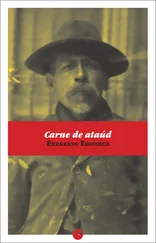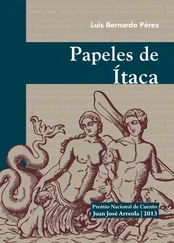Bernardo Atxaga - Obabakoak
Здесь есть возможность читать онлайн «Bernardo Atxaga - Obabakoak» весь текст электронной книги совершенно бесплатно (целиком полную версию без сокращений). В некоторых случаях можно слушать аудио, скачать через торрент в формате fb2 и присутствует краткое содержание. Год выпуска: 2010, Издательство: Graywolf Press, Жанр: Современная проза, на английском языке. Описание произведения, (предисловие) а так же отзывы посетителей доступны на портале библиотеки ЛибКат.
- Название:Obabakoak
- Автор:
- Издательство:Graywolf Press
- Жанр:
- Год:2010
- ISBN:нет данных
- Рейтинг книги:3 / 5. Голосов: 1
-
Избранное:Добавить в избранное
- Отзывы:
-
Ваша оценка:
- 60
- 1
- 2
- 3
- 4
- 5
Obabakoak: краткое содержание, описание и аннотация
Предлагаем к чтению аннотацию, описание, краткое содержание или предисловие (зависит от того, что написал сам автор книги «Obabakoak»). Если вы не нашли необходимую информацию о книге — напишите в комментариях, мы постараемся отыскать её.
Obabakoak
The Observer
Obabakoak — читать онлайн бесплатно полную книгу (весь текст) целиком
Ниже представлен текст книги, разбитый по страницам. Система сохранения места последней прочитанной страницы, позволяет с удобством читать онлайн бесплатно книгу «Obabakoak», без необходимости каждый раз заново искать на чём Вы остановились. Поставьте закладку, и сможете в любой момент перейти на страницу, на которой закончили чтение.
Интервал:
Закладка:
In the first place, there seemed to us to be an evident parallel between stories and poems. As my friend said when summarizing what we’d talked about, both come from the oral tradition and both tend to be short. Moreover, and because of those two characteristics, both have to be intensely meaningful. The proof is that bad stories and bad poems end up being, as someone else said, “futile, empty, and trite.”
“Looked at like that, the key doesn’t lie in making up a story,” my friend concluded. “The truth is that there are more than enough stories. The key lies in the author’s eye, in his way of seeing things. If he’s really good, he’ll take his own experience as his material and extract its essence, something that has universal value. If he’s a bad writer, he’ll never get beyond the merely anecdotal. That’s why the stories we talked about tonight are good. Because they express essential things and aren’t just anecdotes.”
The band hired to make the fiesta go with a swing was playing a very slow, sentimental number. The couples who only a moment before had been bouncing about to the music were now clasped to each other, barely moving.
“That’s why so many stories have been written on the great themes,” I said, taking up the thread of the conversation again. “I mean stories that turn on themes like death and love and the like. In fact exactly the same thing happens with songs.”
“Didn’t Valentín send you something about that?” he said.
“Which Valentín? The one who lives in Alaro?”
“That’s the one.”
My friend was referring to a writer we often saw.
“That’s right, he did. He sent me a manual by Foster Harris. If I’m not mistaken,” I went on, “Harris has some very odd theory about the short story. According to him, a story amounts to nothing more than a simple arithmetical operation. Not an operation involving numbers, of course, but one based on the addition and subtraction of elements such as love, hate, hope, desire, honor, and other such things. The story of Abraham and Isaac, for example, would be the sum of pity plus filial love. The story of Eve, on the other hand, would be a simple subtraction, love of God minus love of the world. Moreover, according to Harris, additions tend to produce stories with happy endings and subtractions ones with tragic endings.”
“So he ends up saying more or less the same as us, then.”
“Yes, although his theory is even more restrictive. Anyway, who knows? Maybe that’s all we are, a few unfortunates ruled by the most elementary arithmetic.”
“Even so, what we’ve said doesn’t seem to be enough somehow. And having a way of looking at the world that is capable of capturing the essence of something isn’t enough either. A good story has to have a strong ending too. At least I think it does,” my friend asserted.
“Oh, I agree, I think a good ending’s indispensable. An ending that’s both a consequence of everything that’s come before and something else besides. And the need for such an ending would explain, I think, the abundance of stories that end with a death. Because death is the ultimate definitive event.”
“Absolutely. Just look at the Chekhov story, or the one by Waugh, or at the story about the servant from Baghdad you told me in the café. They’re all packed with meaning and they all have very powerful endings. The story about Baghdad reminds me of what happened to García Lorca. He flees from Madrid thinking he’s going to be killed there, and then… it’s almost a prophetic story, really excellent. The best of the night in my view.”
I smiled at my friend’s words. At last he’d returned to the story I’d told him in the café. The moment had arrived to produce the card I had hidden up my sleeve.
“Oh, there’s no doubt it’s good. But if it was my story I’d change the ending. I hate all that fatalism,” I said.
My friend looked at me in astonishment.
“I’m serious, I really dislike the fatalism in that story. It seems so implacable, the kind of thing reflected in the saying that life is just like a throw of the dice. What the story is telling us is that we’re born with a fixed destiny and that our will counts for nothing. We have to accept our destiny, whether we like it or not. If death comes for us, we have no alternative but to die.”
Shrugging his shoulders, my friend gave me to understand that he saw no other option.
“If you say so. But to me it seems to be the only possible ending for the story,” he explained.
“Well, I’ve given it another one.”
“You mean you’ve written a variation on the story?” he said, raising his eyebrows.
“I certainly have. And here it is.”
And from a file I’d left in the backseat of the car I took out two pages covered with writing.
My friend burst out laughing.
“Aha! Now I understand. I thought there was something fishy going on when you started talking about the literary tastes of Boris Karloff and all that. One minute we were talking about lizards and what Ismael had got up to and suddenly, with no explanation, you’d gone and changed the subject. Of course! You just couldn’t wait to show me what you’d written. It’s true, isn’t it? You’ll never change!”
His last words were a reference to the reputation I had among my friends, who all agreed that I would do absolutely anything just to get a chance to read them my stories.
“Lord, pardon this your incorrigible servant!” I said raising my eyes to heaven.
“Oh, all right, but let’s go down to the square first. I’m only prepared to listen to your variation on the story with a beer in my hand,” said my friend.
“And I’ll have to pay for the beer, I suppose.”
“Of course.”
“A writer’s lot is a hard one. You even have to bribe people just to be able to work,” I exclaimed before getting out of the car.
In the square we saw that the musicians in the band had taken a break and that an accordionist had replaced them on the stage. The two or three bars available and the area around them were crammed with people shouting to each other and laughing.
It was almost harder getting the drinks than it had been determining what made a good story. At last we got them and — spotting some benches along the path near the cemetery — we fled the noisy bars.
We both felt happy. Our night was becoming more and more like the meetings held once a year in England by members of the Other Society. The only difference was that our meeting was not being held in a hotel in Piccadilly and our stories were not, at least in one sense, gothic.
And having reached this stop on the road, I will again pause to transcribe my variation on the story as I told it to my friend. The journey toward the last word will continue later.
Dayoub, the rich merchant’s servant
ONCE UPON A TIME, in the city of Baghdad, there lived a servant who worked for a rich merchant. One day, very early in the morning, the servant went to the market to do the shopping. But that morning was different from other mornings, for he saw Death in the marketplace and Death looked at him oddly.
Terrified, the servant returned to the merchant’s house.
“Master,” he said, “lend me your fastest horse. Tonight I want to be far from Baghdad. Tonight I want to be in the far city of Isfahan.”
“But why do you wish to flee?” asked the merchant.
“Because I saw Death in the marketplace and he gave me a threatening look.”
The merchant took pity on him and lent him the horse, and the servant left in the hope that he would be in Isfahan that night.
The horse was strong and swift, and, as he had hoped, the servant reached Isfahan just as the first stars were coming out. Once there, he went from house to house, begging for shelter.
Читать дальшеИнтервал:
Закладка:
Похожие книги на «Obabakoak»
Представляем Вашему вниманию похожие книги на «Obabakoak» списком для выбора. Мы отобрали схожую по названию и смыслу литературу в надежде предоставить читателям больше вариантов отыскать новые, интересные, ещё непрочитанные произведения.
Обсуждение, отзывы о книге «Obabakoak» и просто собственные мнения читателей. Оставьте ваши комментарии, напишите, что Вы думаете о произведении, его смысле или главных героях. Укажите что конкретно понравилось, а что нет, и почему Вы так считаете.











